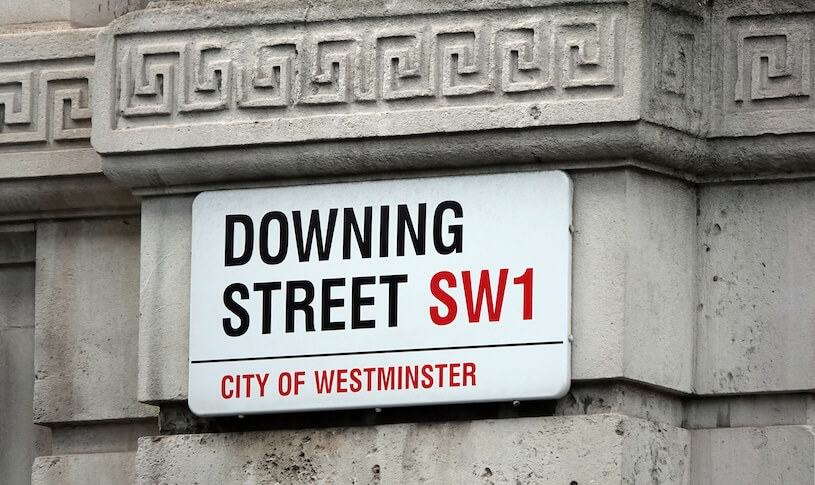The Labour Party has delivered its first Budget in 14 years, with a commitment to raise taxes by £40 billion.
The government stuck to promises that they wouldn’t be returning to austerity or raising taxes on working people.
Small businesses will be impacted by many of the changes announced as part of the Budget – with announcements on key issues such as National Insurance contributions, fuel duty, and business rates.
Here’s all the details SMEs and the self-employed need to know from Chancellor Rachel Reeves’ speech.
- national living wage increase
- employer National Insurance contributions
- income tax and National Insurance thresholds
- fuel duty
- business rates
- capital gains tax
- draft duty
Tax changes impacting small businesses
National living wage increase
Ahead of the Budget itself, the government announced that the national living wage will increase 6.7 per cent to £12.21 an hour. This puts three million low-paid workers in line for a £1,400 pay rise when this change comes into force in April 2025.
Plus as part of a plan to eventually create a single adult rate, 18 to 20 year olds will see an even bigger rise of 16.3 per cent. This means younger people will be paid at least £10 per hour going forward.
“While the minimum wage hike is fantastic for workers, it’s a headache for small employers,” says Bea Montoya, UK COO at Simply Business.
“Many will need to rethink hiring plans and review their workforce due to this added expense. For SMEs already on thin margins, this isn’t welcome news. If the government truly wants to spark growth, they need to do more to help this crucial sector thrive.”
National Insurance contributions by employers
Labour stood by their promise not to raise the basic, higher, or additional rates of income tax, National Insurance (NI), and VAT. Instead, Reeves said they will increase employer National Insurance contributions by 1.2 per cent to 15 per cent from April 2025.
The government also plans to reduce the the threshold at which employers start paying NI on each employee’s salary from £9,100 to £5,000.
Reeves seemed aware of the impact this would have on UK businesses, but noted that the move would raise the government £25 billion annually.
“Successful businesses depend on successful schools, healthy businesses depend on a healthy NHS and a strong economy depends on strong public finances,” she said.
Bea says that this move will “further squeeze the margins of many other SMEs, who are already operating under enormous pressure”.
“These businesses may be forced to consider whether they can afford to keep their current workforce or if they need to reduce the hours of current staff in order to recoup some costs. This increase will particularly impact hospitality businesses, where staffing is one of their biggest – and most essential – expenses.”
However, following industry recommendations, some small businesses will be protected from this hike. The employment allowance will be raised from £5,000 to £10,500.
This means that the very smallest of businesses won’t have to make any employer National Insurance contributions next year. Around 865,000 employers won’t pay any NI due to the change, while over one million will pay the same amount, Reeves said.
Income tax and National Insurance thresholds
In a surprise move, Reeves decided not to extend the current freeze on income tax and National Insurance thresholds. Instead, from 2028-29 (at the end of the freeze brought in by the previous government) the thresholds for these taxes will rise in line with inflation. Higher thresholds will, in theory, mean many working people will pay less tax.
Fuel duty
Fuel duty has been frozen since 2011-12, but Sir Keir Starmer refused to rule out raising it in the run up to the election. However, Reeves committed to maintaining the freeze. She says she will freeze fuel duty next year and will maintain the existing 5p cut for another year, too.
Business rates
Labour is bringing in a 40 per cent relief on business rates for retail, hospitality, and leisure, up to a cap of £110,000 per business. Business rates are a tax on property used for business purposes.
The small business tax multiplier will also be frozen at 49.9p.
Capital gains tax
Reeves also told the Commons that capital gains tax (CGT) will increase. This tax is charged on profits which are made from selling assets such as a second home or investments, including shares. However the rates for selling properties aren’t changing.
The lower rate of capital gains tax will rise from 10 per cent to 18 per cent, and the higher rate from 20 per cent to 24 per cent.
Draft duty
Pubs, bars and restaurants will want to note that Reeves is cutting the duty on draft alcoholic drinks by 1.7 per cent.
Tax rise relief for the smallest businesses
“Small businesses had high hopes for the new Labour government and this Budget was a watershed moment for whether their vote was vindicated,” says Bea.
“The extension to business rates relief and the removal of the income tax freeze are big wins, and excluding some of the smallest businesses, with low employment costs, from the brunt of the Chancellor’s National Insurance hikes is a relief.”
How do you think these Autumn Budget changes will impact your business? Let us know in the comments.
More finance news and guides for small businesses:
- What does a Labour government mean for small businesses?
- Business tax: A guide for small businesses
- How to do a Self Assessment tax return – the complete guide
- What is business insurance?
Photograph: Nigel/stock.adobe.com
Ready to set up your cover?
As one of the UK’s biggest business insurance providers, we specialise in public liability insurance and protect more trades than anybody else. Why not take a look now and build a quick, tailored quote?
